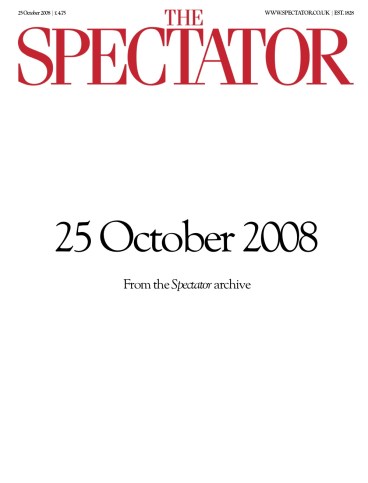Another voice | 25 October 2008
Wherever the civilised English gather to discuss the state we’re in, it is almost axiomatic to allow that we’re getting less refined. Discourse, public and private, is (we tell each other) getting cruder; wit is duller; our culture is dumbing down. A vulgarity and obviousness is gaining ground over the art of delicate suggestion. Nowhere

